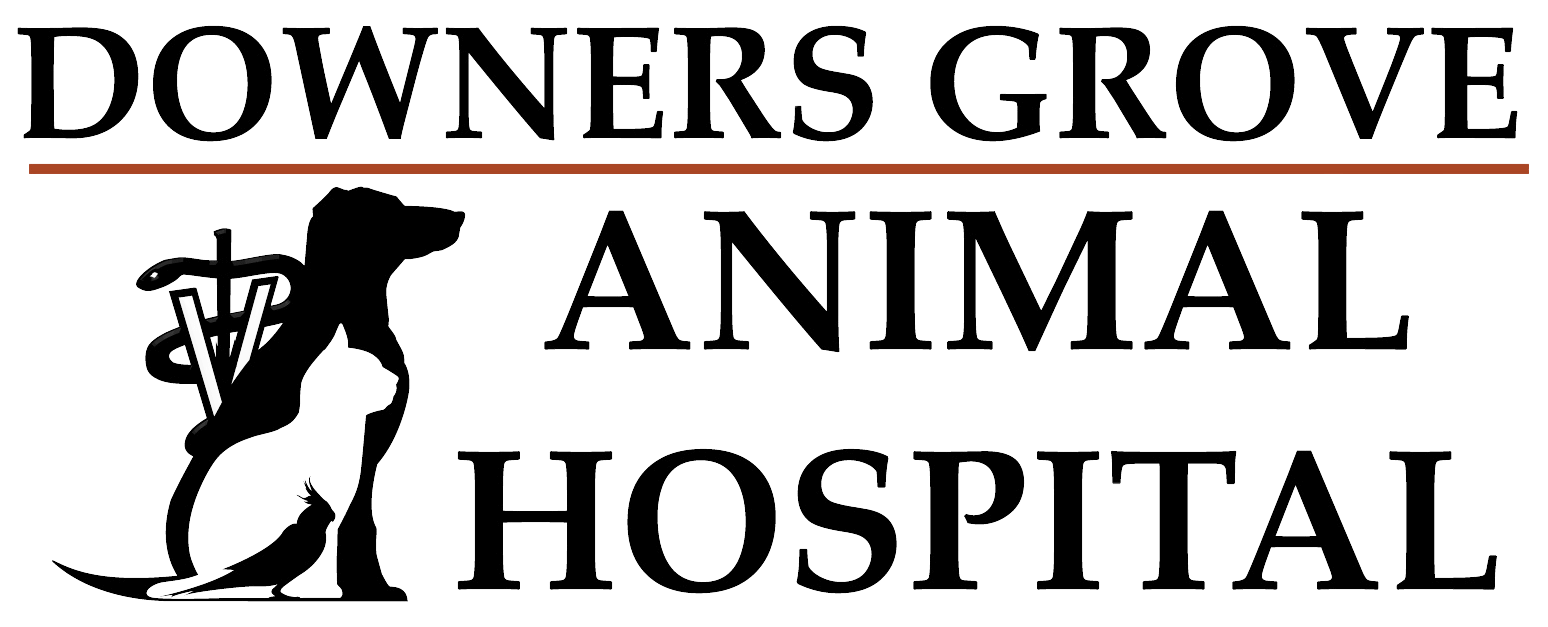Optimum health care can add years to your dog's life as well as substantially decrease your cost of treating medical problems associated with aging. We generally make the following recommendations:
Comprehensive Physical Examinations:
Since pets age 5-7 times faster than humans, it can be estimated that one yearly physical examination for a pet is equivalent to one exam every 5-7 years in humans. This exam should include a very detailed medical history along with a "nose to tail" physical examination. In later years, a comprehensive physical examination should be performed at least every 6 months, in addition to what may be required for any specific medical problems present in your pet.
Laboratory Screening for Diseases:
Many medical problems can be diagnosed through the use of diagnostic testing long before clinical signs of disease become evident. Specific recommendations for your dog may include:
- Heartworm Testing
- Urinalysis
- Complete Blood Counts
- Internal Parasite Examination
- Blood Chemistry Screening
- Thyroid Screening
Nutrition:
Feed the highest quality pet food you can afford. Read labels carefully. Ideal diets for senior pets would have less sodium and fat, and more fiber than regular adult foods. Higher quality and premium foods are more digestible and result in less stool volume. If a specific medical condition is diagnosed, a specific prescription diet may be best for your dog. Vitamin supplements help keep the pet healthy and may enhance the immune system. Fatty acid supplements may be useful for skin problems, arthritis, and kidney disease. Do not feed table scraps or snacks unless formulated for the senior pet. New pet treats are now available that are very palatable as well as healthy for your pet.
As your dog gets older, monitoring water consumption becomes much more important. Increased thirst and water consumption can be an important indicator of several senior pet medical problems. Be sure to tell us if you see changes in water consumption.
Vaccinations:
Depression of the immune system can occur in older pets making them more susceptible to common infectious diseases. Maintaining vaccinations is important because of the potential for decreased resistance in these pets. Vaccination recommendations must be individualized for each pet based on breed, age, physical condition, diseases prevalent in the area, etc.
Heartworm Prevention:
Heartworms are a serious & deadly problem. All pets should be on heartworm prevention continuously and year round.
Prevent Obesity:
Extra pounds burden the heart, kidneys, muscles, & joints, decreasing life expectancy significantly. It is much harder to lose weight than to prevent weight gain. If your dog is prone to weight gains, you need to restrict access to food. We can offer a variety of diets to help limit caloric intake.
Dental Hygiene:
Periodontal disease is the most common disease affecting dogs. Tartar buildup is a result of bacterial infection in the mouth. Once the bacteria attach to the teeth below the gum line, it becomes a "seed" of infection that can spread all over the body. Respiratory, kidney, liver, and heart infections can result from the spread of bacteria from the mouth. It is important to note that the real problem is what you don't see (what is below the gum line) rather than what you do see (above the gum line). Dental exams, routine use of dental hygiene products, and dental scaling/polishing are important for a healthy mouth.
Grooming & Nail Trimming:
Maintaining healthy skin and toe nails makes your pet more comfortable, prevents odor, and makes your pet "shine". Notify us if you observe excessive scratching, flaking, fleas, ticks, sores, or bald spots. Skin growths are also more common in senior pets. Early removal decreases pain, your costs, and chances of spreading.
Flea & Tick Control:
We now have excellent weapons in our war on fleas & ticks. We recommend and sell Bravecto and Frontline Shield for flea and tick prevention. DO NOT BE FOOLED! The over-the-counter "look alikes" are not the same-and can be dangerous.
Medicating Your Pet:
Never give human medications or medications prescribed for other pets to your dog. The liver and/or kidneys must break down most drugs. There can be serious complications if a medication is given to a pet that has compromised internal organs.
Maintain A Constant Environment:
Tolerance to heat and cold decreases with age. Warmth also lessens the signs of arthritis.
Present your dog for examination if you observe any of the following:
- Sustained, significant increase in water consumption (more than 1.5 cups (12 oz.)/10# body weight/day).
- Sustained, significant increase in urination (volume and/or frequency).
- Weight loss.
- Significant decrease in appetite or failure to eat for more than 2 consecutive days.
- Significant increase in appetite.
- Repeated vomiting.
- Diarrhea that lasts over 2 days.
- Difficulty in passing stool or urine.
- Inappropriate elimination, accidents in the house or general changes in bowel habits.
- Lameness that lasts more than 3 days, or lameness in more than one leg.
- Noticeable decrease in vision, especially if sudden in onset or pupils that do not constrict in bright light. Eye discharges or reddening of the white parts of the eye.
- Masses, ulcerations (open sores) or multiple scabs on the skin that persist more than 1 week.
- Foul mouth odor or drooling that lasts more than 24 hours.
- Increased size of the abdomen.
- Decreased activity, or increased time spent sleeping.
- Persistent coughing, gagging or panting.
- Hair loss.
- Episodes of sudden weakness, collapse, or fainting spells.
- Seizures (convulsions).
- Reluctance or inability to chew dry food.
- Any changes in routine behavior or personality.
Call us at (630) 968-2812 any time you observe a potential problem or need additional information and advice.
